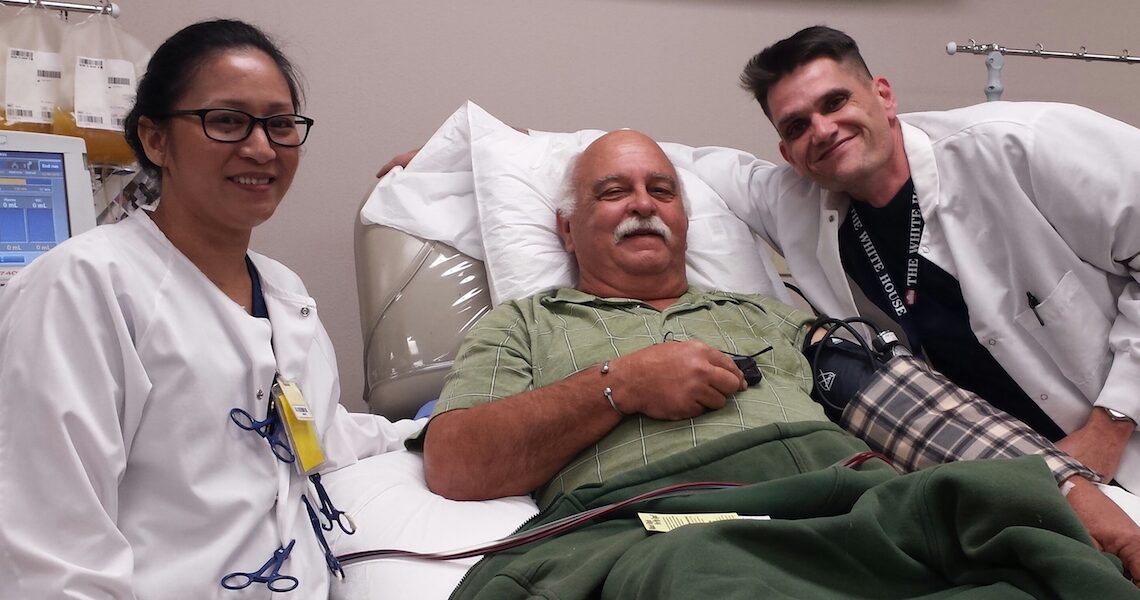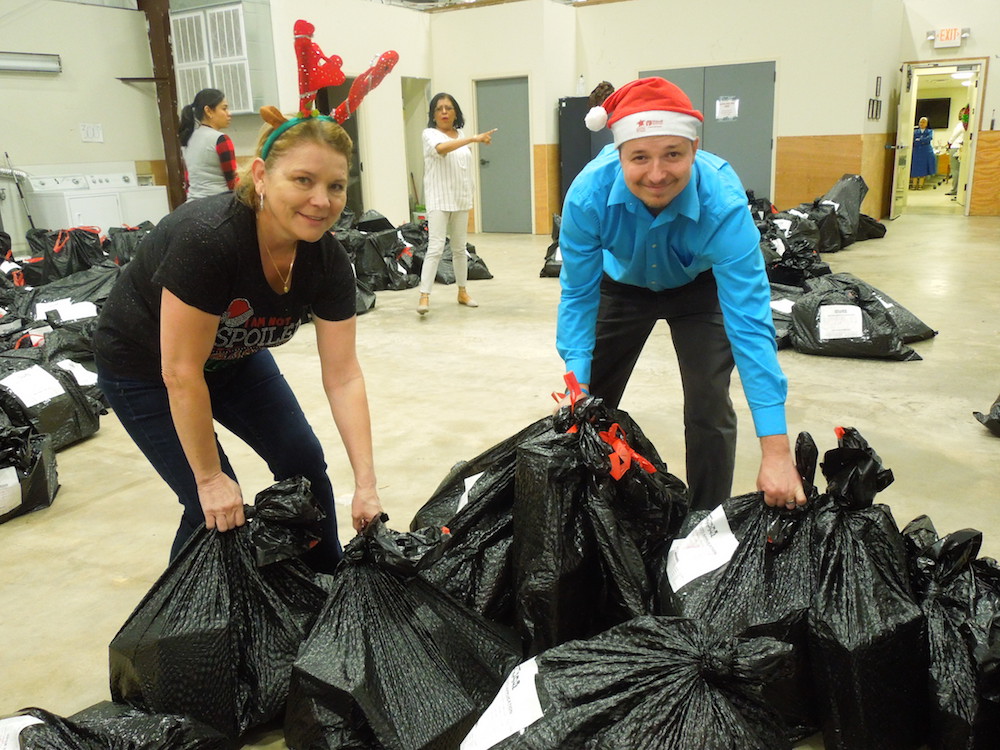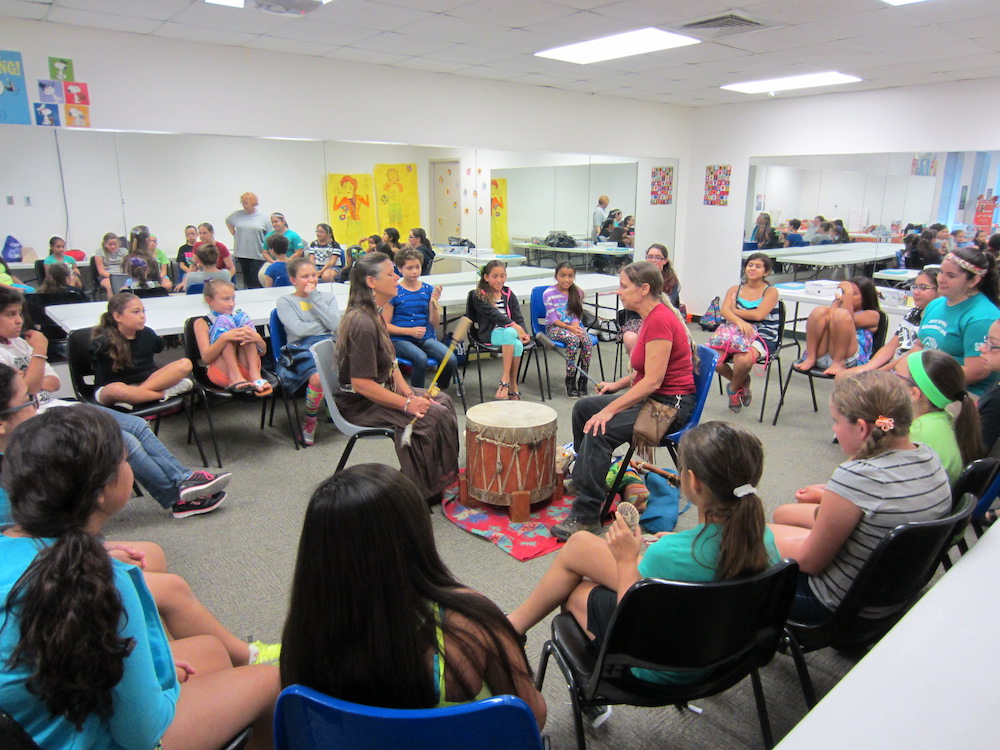
Frequent blood donor Ralph Balko (center) with apheresis technician Danny White and Charmy Advencula of the Coastal Bend Blood Center. The nonprofit conducts blood drives to meet the constant need for blood and platelets in 10 Coastal Bend counties. Photo by Anne M. Garcia
One pint of blood can save three lives.
“The need is constant,” said Jenika Hernandez, laboratory team lead for the Coastal Bend Blood Center in Corpus Christi, adding that one in seven hospital patients needs blood.
The Coastal Bend Blood Center services more than 20 medical facilities in 10 counties across the Coastal Bend. Founded in 1969, the nonprofit is open 24 hours a day with a courier on standby day and night to deliver whatever blood products are needed at any medical facility in any one of the counties served.
To meet that constant need, bloods drives are held across Corpus Christi. Drives are sponsored by different businesses, companies, organizations, and schools. Or, donors can come to the offices on North Padre Island Drive to donate — with an emphasis on the word donate.
“While we do offer incentives, we are a nonprofit — we do not pay for blood,” said Ashley Ramirez, marketing director for the Coastal Bend Blood Center.
She arranges blood drives where a variety of incentives are offered, including T- shirts, restaurant coupons, and coffee.
Blood that is sold is used for research purposes, while blood donated to the Coastal Bend Blood Center is only used to save lives.
Once blood is donated, the lab separates it into its three components — red blood cells, plasma, and platelets — through a process known as apheresis, which removes antibodies in treating autoimmune diseases. Once separated, all blood products are shipped to Dallas to be extensively tested and screened.
Once platelets are separated out of the whole blood, they are only good for five days. Due to the length of time it takes to test and screen, the platelets are only actually viable for use for two days.
“There is no substitute for human blood,” said Caleb Bishop, medical technologist for the Blood Center. “It is not good forever, and what it can do cannot be synthesized.”
While donating blood benefits others in desperate need, donors also derive benefits, said Danny White, apheresis technician at the Coastal Bend Blood Center.
“Blood donation is good for the health of the donor,” he told Corpus Christi Business News. “By getting rid of old red blood cells, it stimulates your body to create fresh ones, literally generating new blood into the veins of the donor.”
Blood donors also earn credit for future blood work they might need in a hospital.
“You can use the credits yourself or give the credits to someone else,” White said.
Donors must be at 17 years or older and weigh at least 115 pounds. A healthy person can never be too old to donate, said White, adding that the oldest person he ever drew blood from was 98 years old.
“She saved three lives that day,” he said
Ralph Balko, a frequent donor to the Blood Center, has been donating blood for over 30 years. For the past six years, he has made regular visits to donate platelets. It takes 8-10 donations of whole blood to make one bag of platelets.
Recently, Balko was at the center donating a triple dose of platelets.
“That covers forty whole blood donors,” White said.
When asked why he is willing to sit through the process of donating so much of his own blood, Balko shrugged.
“It’s to save lives,” he said. “Everybody should be doing this.”
For more information, visit the center’s website at coastalbendbloodcenter.org or its location at 209 North Padre Island Drive.




